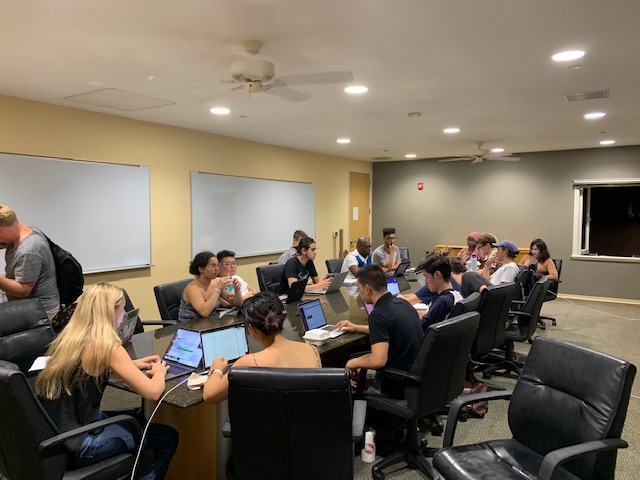The sixth meeting of the 21st Associated Students of Stanford University (ASSU) Senate centered on enhancing student engagement with the Senate and facilitation of respectful campus political engagement. Senators looked to the future of the ASSU in the upcoming year, discussing frosh-friendly outreach to set the tone for productive and civil political discourse moving into 2020.
The Senate expressed continued support for events in solidarity with Chanel Miller and called for the Fraternity and Sorority Life office to implement risk management such as consent training in houses without Peer Health Educators (PHEs). Senator Jonathan Lipman ’21, representative for the Faculty Senate, reported ongoing proposals for changing the first-year experience, primarily through restructuring the Program in Writing and Rhetoric and Thinking Matters programs.
Facilitating ‘respectful on-campus engagement’
“We have a responsibility to model respectful on-campus engagement,” said Senator Micheal Brown ’22, prefacing his resolution to facilitate greater respect in on-campus dialogue and political engagement. Brown advocated for increased Senate funding for events such as issue-specific debates and potential “funding incentives,” as the resolution states.
“Student groups play a large role in determining student opinion on issues and informing students,” Brown said.
Senators discussed the need to set the tone on campus heading into 2020 and the potential political tension of the presidential election.
Members cited last year’s healthcare debate between Stanford College Republicans (SCR) and Stanford Debate Society as an example of civil, productive debate, calling for similar collaboration between student groups.
While senators agreed on the goal of fostering greater intergroup coordination and dialogue, especially regarding political issues, some questioned Senate involvement in this process. Brown supported Senate sponsorship of inter-organization events, citing “evidence of student interest.”
However, Senator Sarah Saboorian ’22 argued that the managing of such events was outside the scope of the Senate and should be left to the individual clubs.
Senate Chair Munira Alimire ’22 concluded that regardless, the Senate needed to be “more intentional with the campus groups we fund.”
Efforts to expand feedback from student body
The Senate also discussed measures to enhance communication with the student body, citing website accessibility and a more positive relationship with The Daily as potential steps towards great campus engagement.
“We must make our web layout and means of communication accessible to every single person,” Senator Miá Bahr ’22 said.
Additionally, there was discussion of the need for more frosh involvement and a focus on improvements to the Senator Associate Program, which allows frosh to participate in policy and projects tackling campus issues.
Contact Brooke Beyer at bbeyer ‘at’ stanford.edu.
